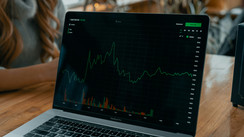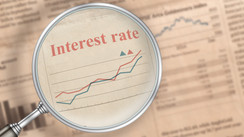Inflation is a measure of the rate at which prices are rising in an economy. It is calculated by comparing the prices of goods and services over a period of time. Inflation can have a significant impact on trading, as it can affect the value of assets and the cost of doing business.
Impact on Trading
Inflation can impact trading in a number of ways. For example, it can:
Decrease the value of assets: When inflation is high, the value of assets, such as stocks and bonds, can decrease. This is because the prices of goods and services are rising, which means that the purchasing power of money is decreasing.
Increase the cost of doing business: Inflation can also increase the cost of doing business. This is because businesses need to pay more for labor, materials, and other inputs. This can lead to lower profits and higher prices for consumers.
Create volatility in the market: Inflation can also create volatility in the market. This is because investors are uncertain about how inflation will affect the value of assets. This uncertainty can lead to sudden changes in prices, which can make it difficult to trade.
Which Trading Assets Will Be Influenced More
Inflation can impact all types of trading assets, but some assets are more sensitive to inflation than others. For example, assets that are considered to be inflation hedges, such as commodities and real estate, tend to perform well during periods of high inflation. This is because these assets tend to rise in price as inflation increases.
Other assets, such as stocks and bonds, are less sensitive to inflation. This is because the prices of these assets are more influenced by other factors, such as economic growth and interest rates.
Current Situation and Future Prediction
Inflation is currently at a high level in many countries around the world. In the United States, for example, the inflation rate is currently at 8.6%, which is the highest it has been in 40 years. This high level of inflation is being caused by a number of factors, including the COVID-19 pandemic, the war in Ukraine, and supply chain disruptions.
The future of inflation is uncertain. Some experts believe that inflation will continue to rise in the near term, while others believe that it will start to decline. It is important to monitor the situation closely and adjust your trading strategy accordingly.
Tips for Trading in a High Inflation Environment
If you are trading in a high inflation environment, there are a few things you can do to protect your investments:
Invest in inflation hedges: As mentioned above, assets that are considered to be inflation hedges, such as commodities and real estate, can help to protect your investments from the effects of inflation.
Diversify your portfolio: By diversifying your portfolio, you can reduce your risk. This means investing in a variety of assets, such as stocks, bonds, and commodities.
Stay informed: It is important to stay informed about the latest economic news and developments. This will help you to make informed decisions about your investments.
Conclusion
Inflation can have a significant impact on trading. By understanding the impact of inflation and how to protect your investments, you can improve your chances of success in the markets.





